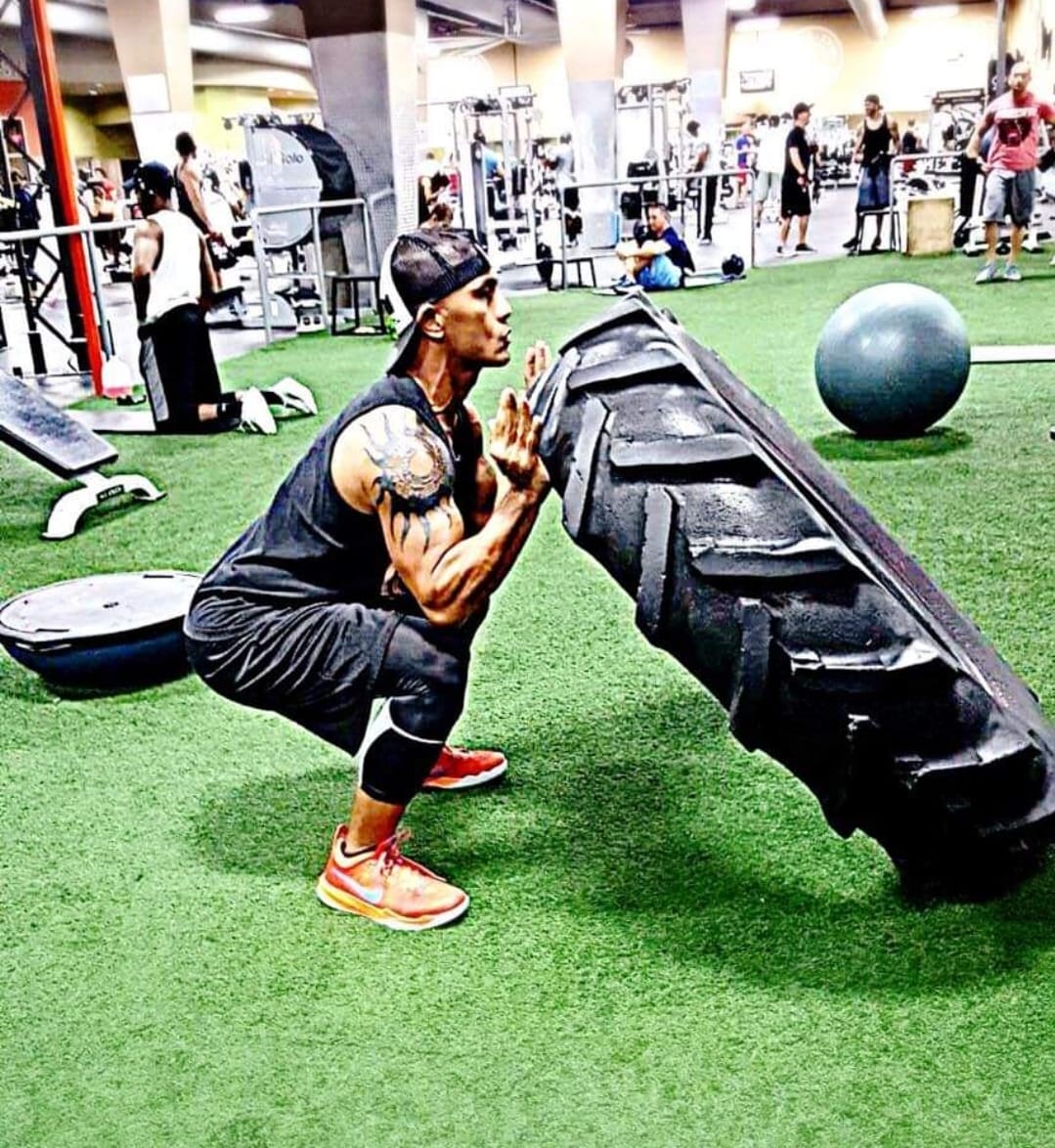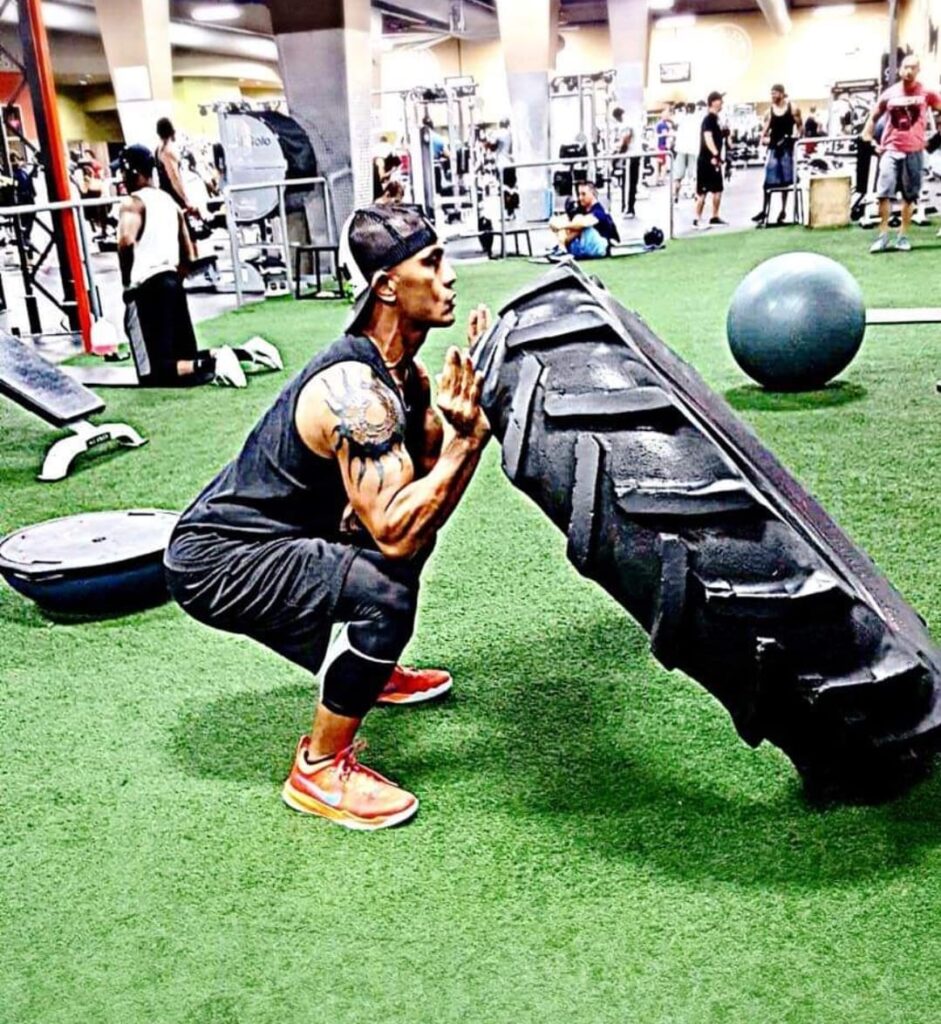
Jerry Diaz undergoes a training session at BBJ Athletics.
EVERY athlete wants to be the best but to achieve that goal, rigorous training is needed, which includes pushing past one’s limit. However, there are some who try to work their way to the top without the necessary recovery time in between sessions, and this leads to negative rather than positive results.
Jerry Diaz, a National Academy of Sports Medicine personal trainer, said it is important for an athlete or fitness enthusiast to avoid the lack of recovery time in between workouts.
A former NMI men’s national basketball team player, Diaz said he had experienced overtraining, which affected him physically and mentally.
Today, with his clients, he said he schedules a realistic weekly calendar that prevents under or overtraining, and is based on factors that include school, work and family variables.
Overtraining symptoms
Overtraining without enough rest can lead to hormonal changes that increase stress hormones and cortisol levels, which can contribute to weight gain, Diaz said.
Overstressing one’s body can also lead to possible injuries due to loss of muscle tissues and small tears in an individual’s muscle that is caused by going pass one’s limits repeatedly without enough recovery time, Diaz said.
Then there’s exhaustion and mood changes. When an individual experiences overtraining, they feel drained and unmotivated. Not having enough rest to allow the muscle tissues and respiratory system to recover can affect an individual’s stress hormones levels, concentration and motivation, which can cause anxiety, depression and mental blocks, Diaz said.
In addition, those who overtrain can get sick easily for a longer period, he added.
One must enjoy his or her training routine.
“When an individual begins to feel that their activity has no purpose, then it will be hard for them to meet their fitness or athletic goals,” Diaz said.
“It is important for the individual to feel inspired and motivated in order to assess what they enjoy the most without feeling like their activity is a chore,” he added.
“So it’s OK to pause, rest, recover and assess,” he said.
Diaz shares the following recovery tips:
• Go for a swim to rest your joints and tendons.
• Relieve muscle tensions through a full-body deep tissue or sports massage.
• Self-massage using your preferred muscle relaxing cream or essential oils.
• Take a cold or hot bath.
• Focus on mobility movements such as yoga, Pilates or body weight flows with full breathing techniques.
Diaz said seeking professional advice from a doctor, a certified professional trainer or a mental health therapist can also help.
For professional fitness inquiries, contact Jerry Diaz through Instagram at @BBJ_Athletics or Facebook.











